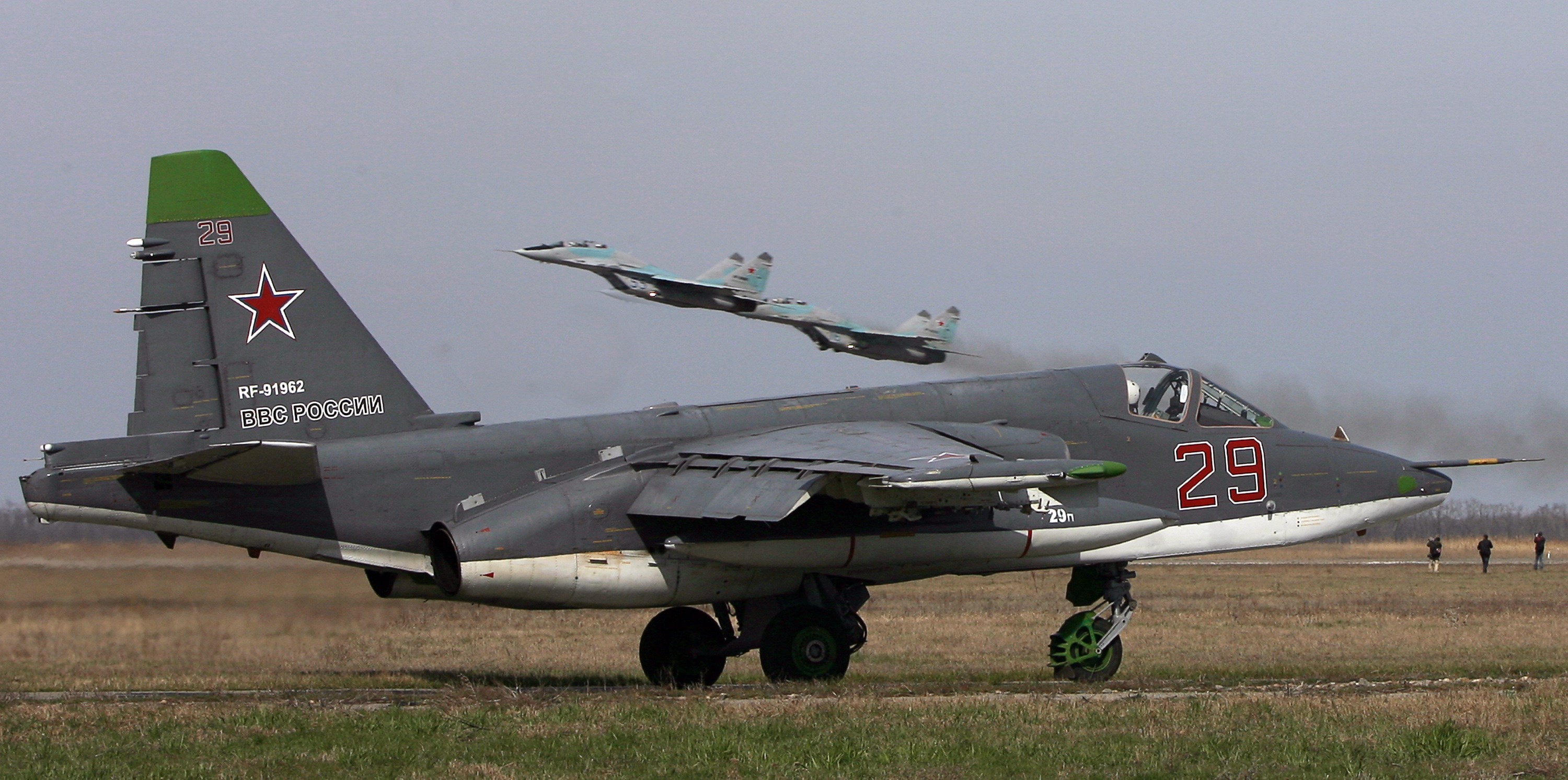Russia is flying fighter jets over Turkey, setting up possible NATO confrontation


A free daily email with the biggest news stories of the day – and the best features from TheWeek.com
You are now subscribed
Your newsletter sign-up was successful
On Monday, NATO ambassadors held an emergency meeting after Russian fighter jets in Syria flew at least two sorties into Turkish airspace over the weekend, once locking its weapons onto Turkish fighter jets. The NATO officials warned that Russia's "irresponsible behavior" could have serious consequences. Russia responded that the incursions were an accident and that "there is no need to look for conspiratorial reasons." U.S. and NATO officials dismiss that explanation and suggest Russia is trying to intimidate Turkey and its allies.
In Chile on Monday, U.S. Secretary of State John Kerry said the U.S. is "greatly concerned" about the Russian incursions "because it is precisely the kind of thing that, had Turkey responded under its rights, could have resulted in a shootdown." If Russia attacks Turkey, NATO is obligated to come to Ankara's defense.
Russian fighter jets join an increasingly crowded aerial battlefield over Syria, where Russian and Syrian jets are bombing one side of the country and the U.S.-led coalition — which includes Turkey as well as France, Australia, Canada, Jordan, and Saudi Arabia — is bombing Islamic State and other Islamist targets around the country. "What we're seeing now is a lot of different countries and coalitions operating in the skies over Syria," said Stephane Dujarric, a spokesman for U.N. Secretary-General Ban Ki-moon. "I think it creates a situation that is fraught with danger and very delicate, as we'd seen in the issue of the violation of the airspace with Turkey.... This should really refocus people's attention on finding a political solution."
The Week
Escape your echo chamber. Get the facts behind the news, plus analysis from multiple perspectives.

Sign up for The Week's Free Newsletters
From our morning news briefing to a weekly Good News Newsletter, get the best of The Week delivered directly to your inbox.
From our morning news briefing to a weekly Good News Newsletter, get the best of The Week delivered directly to your inbox.
A free daily email with the biggest news stories of the day – and the best features from TheWeek.com
Peter has worked as a news and culture writer and editor at The Week since the site's launch in 2008. He covers politics, world affairs, religion and cultural currents. His journalism career began as a copy editor at a financial newswire and has included editorial positions at The New York Times Magazine, Facts on File, and Oregon State University.
-
 The ‘ravenous’ demand for Cornish minerals
The ‘ravenous’ demand for Cornish mineralsUnder the Radar Growing need for critical minerals to power tech has intensified ‘appetite’ for lithium, which could be a ‘huge boon’ for local economy
-
 Why are election experts taking Trump’s midterm threats seriously?
Why are election experts taking Trump’s midterm threats seriously?IN THE SPOTLIGHT As the president muses about polling place deployments and a centralized electoral system aimed at one-party control, lawmakers are taking this administration at its word
-
 ‘Restaurateurs have become millionaires’
‘Restaurateurs have become millionaires’Instant Opinion Opinion, comment and editorials of the day
-
 British warship repels 'largest Houthi attack to date' in the Red Sea
British warship repels 'largest Houthi attack to date' in the Red SeaSpeed read Western allies warn of military response to Iranian-backed Yemeni rebels if attacks on ships continue
-
 Houthi rebels claim Red Sea ship attacks
Houthi rebels claim Red Sea ship attacksspeed read Iran-backed Yemeni group vows to escalate aggression towards Israel-linked vessels in revenge for Gaza war
-
 Israel plans next phase of Gaza war as first hostages released
Israel plans next phase of Gaza war as first hostages releasedSpeed read After four-day ceasefire 'we will not stop' until destruction of Hamas, says Israel
-
 Mob storms Russian airport 'looking for Jews'
Mob storms Russian airport 'looking for Jews'Speed Read Plane from Israel surrounded by rioters chanting antisemitic slogans after landing in Russia's Dagestan region
-
 Tuberville's military promotions block is upending lives, combat readiness, 3 military branch chiefs say
Tuberville's military promotions block is upending lives, combat readiness, 3 military branch chiefs saySpeed Read
-
 Ukraine's counteroffensive is making incremental gains. Does it matter in the broader war?
Ukraine's counteroffensive is making incremental gains. Does it matter in the broader war?Speed Read
-
 US commissions first-ever Navy ship in a foreign port
US commissions first-ever Navy ship in a foreign portSpeed Read
-
 British spy chief, Wagner video suggest Prigozhin is alive and freely 'floating around'
British spy chief, Wagner video suggest Prigozhin is alive and freely 'floating around'Speed Read
